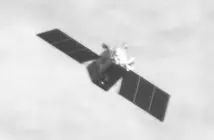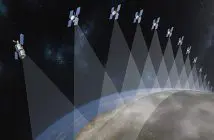
Written by Staff Writer.
Investors are continuing to fund space sector startups in Australia and elsewhere despite a more cautious investment environment.
This week, US-based remote sensing startup Albedo announced that it had secured USD35 million from a consortium of investors led by Booz Allen Ventures. In the same week, France’s Latitude (formerly known as Venture Orbital Systems) locked in USD30 million in funding to help it develop its first rockets.
While still not a top sector for investors, space is increasingly capturing attention because of its commercialisation, innovation, and growing impact on people’s day-to-day lives.
A report released this week by specialist venture capital firm Space Capital estimated private investment in the global space sector amounted to almost USD18 billion in 2023, rebounding from dips in the two previous years. Investors have pumped around USD300 billion into space startups worldwide in the last decade.
Last week, Italian space logistics startup D-Orbit reported raising almost USD110 million to fund its business model, which focuses on satellites and space debris cleanup. All three capital raising programs saw new and existing investors tip in additional funding. The investors range from individuals to financial institutions to investment funds.
Intro-act, a company that acts as a broker between investors and companies looking for capital, says the impact of increased capital investment in the space sector is already apparent. It says the democratisation, commercialisation, and internationalisation of space are helping drive investment.
Australian space businesses are attracting a share of the investment money. Gilmour Space, intending to launch its first rocket this quarter, is backed by venture capital totalling almost AUD100 million. Its high-profile backers include Blackbird Ventures and Main Sequence.
While Gilmour is at the growth stage, promising space sector companies at a younger life cycle stage are also finding funding. Aquila, which wants to build an infinitely scalable energy network using space-based optical relay systems, has secured AUD3 million in seed funding from a consortium including Blackbird Ventures.
Australia-based venture capitalist Main Sequence has AUD1 billion under management and has invested in scores of local deep-tech startups, including space. “We are investing in the difficult to build companies others struggle to support,” the company says. Its portfolio includes Quasar Satellite Technologies, which picked up AUD6 million in an A-Series capital raising last year. That followed the startup securing AUD12 million in funding in 2021.
Main Sequence also led a AUD2.2 million capital raising for Sydney-based Arula last year. The company, which wants to simplify the procurement of satellite imagery and streamline data management, also attracted funding from Lockheed Martin Ventures.
While space startups in Australia and elsewhere attract investor interest, the days of relatively easy money are over. The rising cost of capital and the tech bubble bust have tempered the risk propensity of many investors. Less than 4% of space startups looking for capital manage to secure funding from venture capital and private equity firms. However, globally, Inro-Act expects more money to be invested in space sector startups this year. If innovation, commercialisation, and internationalisation trends continue, they say the cream of the space startup crop will continue to attract investor interest.





